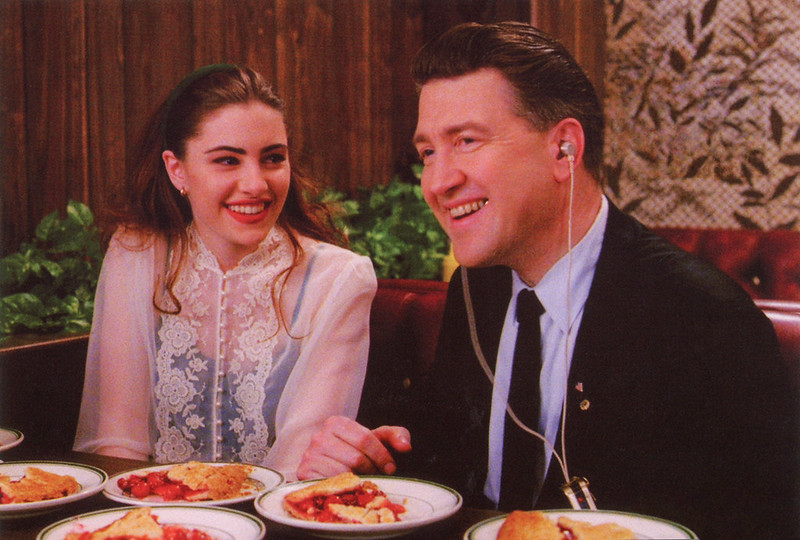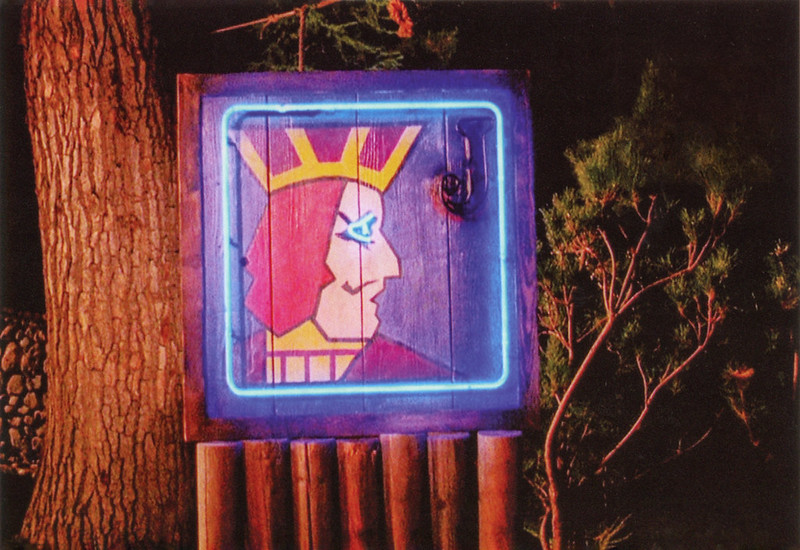The David Lynch Effect Today

The week is over. It's Friday night here in Paris, and Friday night is movie night. There's a commotion outside the Christine Cinéma Club movie theater as the AUP Film Club gathers to screen American filmmaker and director David Lynch's film Blue Velvet. Lynch has earned his status as one of the most enigmatic figures in contemporary cinema, having won many awards for works such as Lost Highway (1997), Mulholland Drive (2001), and Twin Peaks (1990 - 1991). His background in writing and painting also contributes to his unique approach to narratives and imagery, and he often likes to infiltrate his own films with little cameos.

Have you ever had a dream so complex you couldn't possibly imagine how it was formed? An unexplained impulse to do something you wouldn't normally do? Allow me to introduce you to David Lynch through the fascinating perspectives of younger generations, who are discovering his work almost forty years later, showing his persisting influence.
It's complex and often subjective to describe the uniqueness and feel of Lynch's cinematic style. So much so that an actual word, Lynchian, was invented for his specific style. For example, Black Swan (2010) and You Were Never Really Here (2017) are reminiscent of the Lynchian style. One term used by a student at the screening to describe Lynch's films was "compelling." They explained that looking away from the screen was almost impossible, even as the most unusual things happened. They claimed to be "strangely not repulsed" by what they saw. They described feeling a mix of familiarity and foreignness that left them completely perplexed.
A first-time Lynch viewer said they were "absolutely enthralled" by the film's style and that Lynch would leave a mark on them. This prompted a more detailed discussion, where everyone agreed that Lynch's films generally tend to stay with the audience long after they've left the theater. His movies, essentially puzzles and mysteries wrapped in a blanket of surrealism, attempt to provide insight into what the subconscious and dreams are made of. Lynch asks questions that seemingly cannot be answered and creates images that are hard to visualize. A prime example would be Twin Peaks (1990), where he uses symbolic motifs and a metaphorical form of storytelling, offering different interpretations for the audience to ponder.

The visuals' atmosphere and mood are essential, accentuating the non-conventional narratives the director often aims for. Viewers say there is a sense of shared experience within his films because it's easy for him to project various thoughts and feelings they cannot express. Students mentioned finding solace in his movies, speaking for them more so than to them. Lynch knows how to tap into universal themes and emotions in a profoundly personal and harsh way. He will actively shock you, impress you, and make you question humanity, identity, desire, and fear.
Film students took apart the technical aspects of the director's films, focusing on Blue Velvet, which acted as one of the early blueprints for Lynch's later films. Lynch became obsessed with exploring the darker parts of society, blurring the line between mundane and bizarre more and more. Specifically, they mentioned Lynch's remarkable knack for switching between establishing shot points, introducing the setting, and dramatic, action-packed events. One minute, you're watching Jeffrey and Sandy enjoying a burger in Blue Velvet, and the next, they're running away from a man on the loose with an oxygen mask. "With Lynch's films, you just feel like you're on your toes the entire time. You stop wondering when things are going to really start, and this sudden shift in vibe shakes you entirely. I can never process it immediately; it's incredible." A long-time Lynch fan said about those unfamiliar with the director, noting how great it was to witness first-time reactions to his work. A little glimpse of what this student is talking about below:
A striking point was brought up: the script and plot aren't the richest features in Lynch's films. You'll find that the stories are driven by cinematography, symbols, and surreal elements. Lynch uses unusual camera angles, slow editing, unexpected settings, and eerie sounds to make the image of the subconscious come to life. Lynch pushed the boundaries of visual storytelling, focusing on more cinematic aspects with Eraserhead (1977), his first big feature film. After Eraserhead, these techniques were encouraged over traditional plot development in the film industry, with many filmmakers shifting to a more experimental and atmospheric approach to cinema. Directors such as Darren Aronofsky, Lynne Ramsay, and Xavier Dolan have cited Lynch as a significant inspiration for this particular reason.
"The most obvious thing with Lynch is his obsession with Light and Darkness," said AUP's Professor Jaunas as the discussion ended. This particular concept and what it means in Lynch's world fascinated everyone. Besides his familiar favorites, surrealism and metaphors, Lynch perpetually explores moral ambiguity and the duality of "good" versus "evil" within his characters. He constantly shows the light and dark parts of their personalities, the eternal dilemma between hero and villain. It is fascinating how his characters' personas bleed into one another, exposing the hypocrisy and moral decay of the allegedly perfect suburban lifestyle. Lynch always pushes his audience to reconsider traditional ideas of morality within the intricate human experience, with the same effect today.
At 77 years old today, Lynch's latest film was Inland Empire (2006), and his last show was the third season of Twin Peaks in 2017. With several rumors of a big return going around, "Lynch is still hard at work, making and releasing short films frequently," according to The Signal.
Here are David Lynch's works, which promise enigmatic storytelling and mind-bending audiovisual journeys for when you're in the mood for a cinematic adventure that defies conventions and stimulates the imagination.





